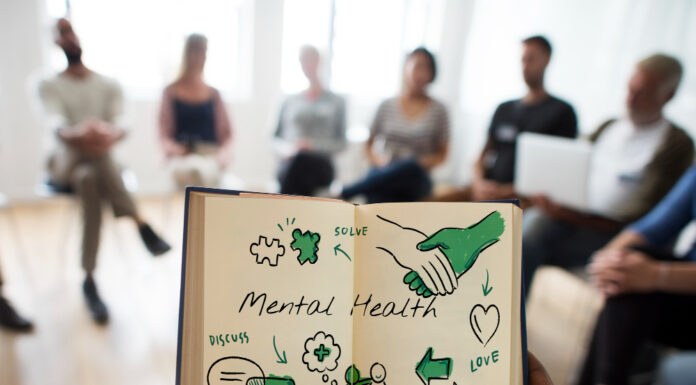What’s the number one crisis in the country: Guns? Abortion rights? Climate crisis? Drug addiction? They’re all valid concerns, but none rival mental health. It’s a topic that no one wants to touch. What is mental health, and why do we choose to ignore it?
Mental health issues are problems with emotions, thinking, or behavior (or a combination of these) that result in distress or difficulty functioning in social, occupational, or family settings. Every year, the National Alliance on Mental Health (NAMI) estimates that 1 in 5 individuals (52.9 million people in 2020) experiences mental illness, with 5% developing a severe case. Nearly 17% of children and adolescents suffer from mental illness. Tragically, suicide is the second leading cause of death among people aged 10 to 34, which is tragically the case.
What causes an individual to experience mental illness? Triggers include genetics, unhealthy habits, stressful life events, early life trauma, living in a stressful environment (lousy marriage, stressful job, financial status, abusive family, politics), and brain chemistry. A majority of those that are impaired will not seek treatment. Statistics indicate that 60% of those affected will not seek assistance. Most will treat the problem as a passing episode and not a chronic illness. Another reason for ignoring an episode is the stigma associated with mental illness. An uncomfortably large percentage of the population, driven by ignorance and misinformation, choose to cast prejudice and often discriminate against the mentally ill. A 2016 study on stigma concluded, “there is no country, society or culture where people with mental illness have the same societal value as people without mental illness.”
What are the most common symptoms of mental illness? What signs should you be looking for?
- Feeling sad or down
- Confused thinking or reduced ability to concentrate
- Excessive fears or worries or extreme feelings of guilt
- Radical mood changes of highs and lows
- Withdrawal from friends and activities
- Significant tiredness, low energy, or problems sleeping
- Detachment from reality (delusions), paranoia, or hallucinations
- Inability to cope with daily problems or stress
- Trouble understanding and relating to situations and people
- Problems with alcohol or drug use
- Significant changes in eating habits
- Sex drive changes
- Excessive anger, hostility, or violence
- Suicidal thinking
What should you do if you are experiencing any of these symptoms? If you’ve experienced any of these symptoms, you should check in with your primary physician, who will most likely give you a referral for an evaluation. Treatment plans range from meditation and talk therapy to medication. Mental illness is not a weakness or a character flaw. Addressing the issue will make your life more fulfilling and make you stronger!








